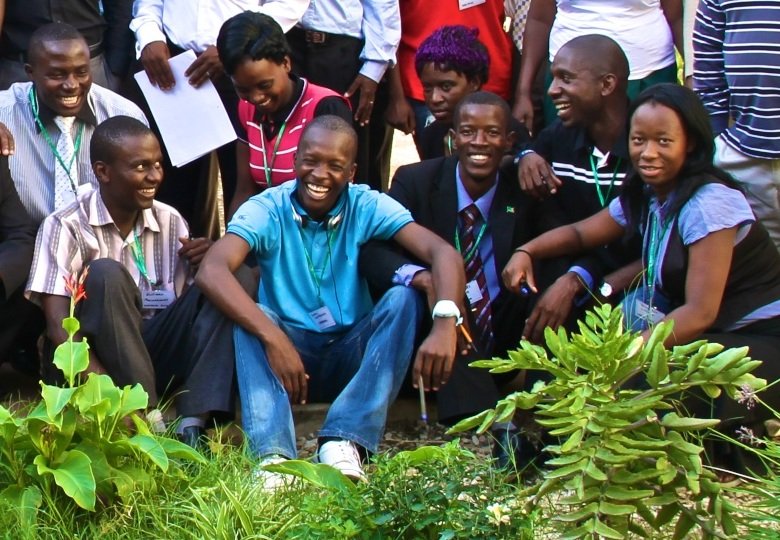For human development specialists, population growth is no laughing matter. By November 2022, the global population is projected to reach 8 billion, inspiring many analysts across the board to speculate on what the future holds. Whereas industrialized nations are worried about declining fertility, the Global South has been warned about high birth rates. As usual, the tone is more alarmist when it comes to Africa.
For decades, development reports have called out African countries for their unsustainable demographic growth. This growth tends to be viewed as a strain on almost all developmental capabilities. Today, more than 60% of Africa’s population is under the age of 25. By 2030, young Africans are expected to constitute 42% of global youth. For any policymaker this is obviously seen as a challenge: more mouths to feed, more bodies to keep healthy, millions of jobseekers waiting in line. Importantly, there are concerns about how to equip youth for an increasingly evolving knowledge economy. Now more than ever, universities are front and centre in the continent’s development battle.
Youth equals dynamism
Let’s consider how youth itself is perceived in public narratives. When the United States, Japan, or South Korea register declining birth rates, they mostly register missed potential for active participation in the workforce. On the other hand, Africa’s burgeoning young population keeps being characterized as merely a recipient of human development infrastructure, including higher education.
When it comes to creating value, Africa’s youth is anything but passive. The millennial generation has lived through the continent’s meteoric rise in mobile and internet penetration rates. Today, African youths are increasingly taking an active role in shaping their future. In Accra, Nairobi, Cairo, or Benguerir, fully-fledged start-up scenes are disrupting how we think about African agriculture, industry, IT, and sustainability.

In the majority of cases, these businesses are spearheaded by Africans under the age of 35. In fact, 2021 was a record-breaking year for Africa’s start-up scene, which secured over $2 billion in funding. The African Development Bank (AfDB) attributes this mostly to “large economies and sizeable populations.”
Young Africans – The Need to seize the opportunities
The question is how can the continent’s social engineers adapt their models to further catalyze this innovation? Already, policymakers are taking notice. Last week during the 8th Tokyo International Conference on African Development, AfDB President Akinwumi A. Adesina announced the launch of the African Education Science, Technology and Innovation Fund, stating: “Together, we have a unique opportunity to reach millions of youths with education.”
There is growing recognition that Africa’s education programmes must be reimagined to nurture the entrepreneurial spirit that benefits society. This means removing the top-down curricula that have for years restricted the potential of African youth within the confines of theory. Gone are the days when a university education was just a stepping stone. Because it serves to encourage the demographic potential of youth, higher education in Africa must first and foremost help to shape the continent’s future. This begins with the recognition that African academia does not exist in a vacuum, but it is one variable in the developmental dynamic.

Higher education should be Objective and Realistic, Not a Reinvention of the Old
Africa’s higher education systems do not necessarily have to go through a wholesale reinvention. Nor do they require replication of models foreign to the continent. The temptation for such replication is usually what leads to curricula that are disconnected from the continent’s realities. After all, a university’s utility is in anticipating and solving legitimate dilemmas on the ground. On the ground in Africa, the ingredients for more impactful education are already in place.
The continent is facing developmental challenges of food security, healthcare, sustainability, and infrastructure that urgently need tackling. The same urgency warrants a learning methodology that does not wait for theory to set in before experimenting with solutions. Energetic, forward-looking, and constantly wired into their surroundings, young Africans are fast learners by design. A teaching methodology of “learning by doing” is therefore better suited for encouraging young Africans to directly try their hands at real-world problems – in pursuit of real-world solutions.
The infrastructure needed for such learning approaches is considerable. To harbour real experimentation methods, African universities must be the beating heart of fully-fledged agricultural, technological, industrial, economic, and social ecosystems.
Which brings us to the elephant in the room: such ambitious designs for Africa’s youth need significant financial support. Thankfully, public and private stakeholders in Africa are already at work tackling key developmental challenges. But relying on the state alone for funding isn’t enough. Any realistic, impactful education system must harness multiple synergies between Africa’s universities, industry, and business through targeted investments. For the continent’s private sector, the return on investment is irresistible: access to applied research, and to a pool of young, bright talent hungry for impact.




